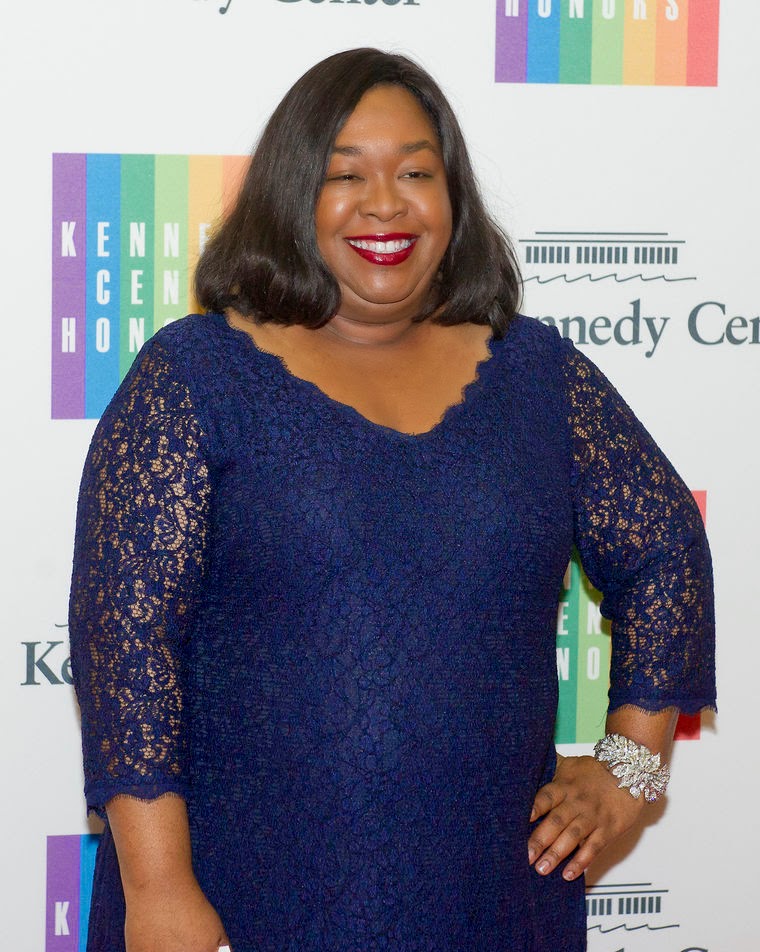
You might have read that a White woman journalist wrote a racist review of producer Shonda Rhime’s latest TV series. “How to Get Away with Murder” is a new show starring the fabulous Viola Davis who plays a lawyer and Professor. Apparently successful Black women are simply just “angry” (read: intelligent and assertive), whose other emotions are overshadowed by their unwillingness to be doormats.
The journalist criticises Rhimes for fashioning “angry Black women” in Rhime’s own image… failing to realise that the show’s creator is actually a White man! Moreover, as Rhimes noted on her Twitter, her show “Scandal,” centred on a smart Black woman is held up as the epitome of her supposed Black anger, but Rhime’s other show, Grey’s Anatomy, focused on a White woman, does not receive the same treatment.
Journalist Melissa Harris-Perry has written a brilliant satire turning the Angry Black Woman trope on its head. She focuses on Aaron Sorkin’s production, “The Newsroom,” asking why it’s okay for White men to express anger without being criticised as being menacing. This would be a nice piece to read alongside Michael Kimmel’s study on angry White men.
The journalist has defended her article saying she was using a “rhetorical device” by framing Rhimes using the Angry Black Woman trope and that she was praising her for casting Davis when she referred to her dark skin and looks as unconventional beauty. The NYT review editor has apologised but defended the piece saying three editors approved it and saw nothing wrong with the article. Not hard to work out why: the NYT reviews, one of the most respected in the world, in one of the most cosmopolitan cities in the world, has only two people of colour on staff and not one Black writer/editor.


Not only did this journalist get it wrong but I’ve yet to see Shonda write an angry black woman. Happy to see she’s writing on another show though.
LikeLike
Raquel Gonzalez Thanks for your comment! Yes Shonda Rhimes is handling it with humour and short, clever puns. The thing is that she has every right to be mad. People can express frustration when the situation warrants it (without being disrespectful or getting personal) without having to face gender and race policing of their emotions. That’s the opposite of what this White woman journalist did. She attacked Rhimes’ femininity and character in a review about a TV show. I doubt that the journalist would have bitten her tongue if someone called her names in public and did a lazy job researching the piece. But instead Rhimes has been witty, poised and has not lingered over the issue even though she could have.
In contrast, the journalist has defended her article saying she was using a “rhetorical device” by framing Rhimes using this trope and that she was praising her casting of Davis when she referred to her dark skin and looks as unconventional beauty. Dressing up racism as eloquence: White privilege is astounding! I’ll update my post with details.
LikeLike
As a white male, I am intimidated to say much of anything about women or people of color precisely because I may get it wrong and apologies will not be accepted.
LikeLike
The Other Sociologist The fact that this “journalist” had admitted that this is rhetoric reveals her agenda. Willful lack of integrity is what makes a journalist these days.
#postracistamerica
LikeLike
Joey Brockert So long as you are respectful, you won’t need to apologise. 😉 I appreciate that you do engage with posts, even on tough issues like White male privilege.
If anyone else reading this thread is worried about how to be a better ally to women and people of colour, I have an upcoming post on this. A couple of good general guidelines are just about listening (or reading in this case) and learning. A majority member’s personal opinions or anecdotes do not refute/invalidate the experience of minorities (the “my partner/daughter/friend thinks this is okay” argument is unproductive). Similarly, social science data on minority issues cannot be argued against using subjective opinions or experiences. As long as people recognise their privilege and are committed to listening and being collaborative, things will be fine! Dialogue can be tricky on these issues, but it’s necessary for social change.
LikeLike
The Other Sociologist I realize I am on the outside looking in, so I can not know what others have to deal with, but I ca n listen.
LikeLike